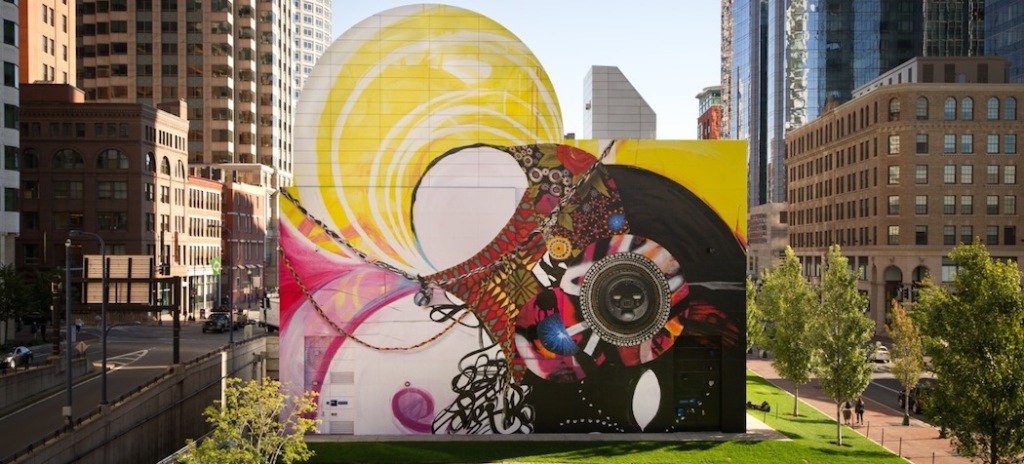available for purchase
at this time.
#StaffChat: Envisioning Boston’s Cultural Future
Staff Chat posts feature articles and news that the C1 team discusses as part of our weekly all-staff meeting. We’d love to hear your thoughts, too — hit us up here in the comments, or on Facebook and Twitter!
♦♦♦♦♦
While C1 was busy opening our Displaced Hindu Gods Trilogy by Aditi Kapil over the past few weeks, some exciting announcements about the state of Boston’s cultural community were released. The staff is reading a few articles this week to catch up on the news – check out the links below:
- “MFA study finds Bostonians love cultural events” by Melissa Hanson for the Boston Globe
- “New Report: The Changing Face of Culture in Boston” by Ed Siegel for the WBUR Artery
- “Boston launches cultural planning process” by Joel Brown for the Boston Globe
Last month, results of the MFA’s “Culture Track 2014: Focus on Boston” study were released. The study interviewed 1,238 people from Boston, Greater Boston, and parts of New Hampshire earlier this spring to examine how engaged Boston-area residents are with cultural events in their communities, especially in comparison to the national population that was previously given the same survey. As reported by the Boston Globe, “The study found that 78 percent of Boston-area audiences participate in at least one cultural event each month, while only 69 percent of national audiences do.”
What’s especially noteworthy about the study is how respondents are defining what constitutes a cultural event. From WBUR:
Both national and Boston audiences are defining a much broader range of activities as ‘culture.’ Bostonians are more inclined to think of ‘culture’ as including national, state or municipal parks and memorial sites; art, craft, design and furniture fairs; public art; food and drink experiences; popular music concerts; attending or watching a live or recorded lecture or talk; seeing an independent film in a theater or at home; listening to public radio; and watching non-commercial television.

Malcolm Rogers, Ann and Graham Gund Director of the Museum of Fine Arts, presenting the results of Culture Track: Focus on Boston in September
The MFA Culture Track study also found that younger audiences are more culturally active in Boston compared to older generations, especially in national comparisons. In fact, “Boston Millennials hold a deep, even ‘traditional’ view of the role of culture in society; like Boomers (50-69) and Pre-War, they believe that the primary roles of cultural organizations are to educate, contribute to the greater good of society and conserve and take care of art.” Along with this sense of tradition, Bostonians are also more likely to use social media before and during cultural events compared to their national peers. On the downside, Bostonians report higher levels of stress and schedule-overload, and are more likely to view inconvenience as a barrier to participation. It was also noted that half of Millenials wouldn’t attend a cultural event if they had to attend alone.
The results of the MFA study are especially interesting in light of the recent push for Boston’s creative class to have a more prominent role in city planning. Under Mayor Walsh, who made a strong commitment to the arts during his campaign, a city-wide cultural planning process will soon be underway to expand resources for Boston’s arts communities and raise the city’s national profile as a hub of arts and culture. The project will be overseen by Julie Burros, the incoming chief of arts and culture, with plans to “put the arts at the heart of the city’s future for at least the next decade, for artists, residents, and visitors alike.”
When considering how Boston residents might view the city’s future cultural investments, James E. Canales, president and trustee of the Barr Foundation, raised a particularly important point:
The comment will be made, ‘With all the urgent pressing issues facing society today, why is it you’re funding in the arts?…We need to shift the frame from the idea that the arts are a ‘nice to have’ to really looking at the arts as a must-have in the community…If you care about a community that is vibrant, that is seeking engagement from all of its citizens, that is looking for ways to spark and support creativity… arts and culture has to be at the center of your community.
Here are a few of the questions the C1 staff will be considering in response to the Culture Track study and plans for cultural development in Boston:
- — With audiences defining cultural events more broadly, does that change the way we should approach our season programming or engagement events? How about partnerships with other organizations?
- — Are there strategies we can use to combat the barriers to attendance (stress, busy schedules, a dislike of attending events alone) noted in the MFA Culture Track study?
- — The city’s long term cultural plan is considering everything from “festivals to public art, and from easier permitting for neighborhood arts events to affordable housing for artists who might otherwise move somewhere else to work.” What are the top priority issues C1 would like to see addressed in the planning process?
- — Company One has always valued the arts as a “must-have” in the community – are there ways we can join the broader cultural community and the Walsh administration to articulate the importance of that value to people who may question its significance in city planning?
